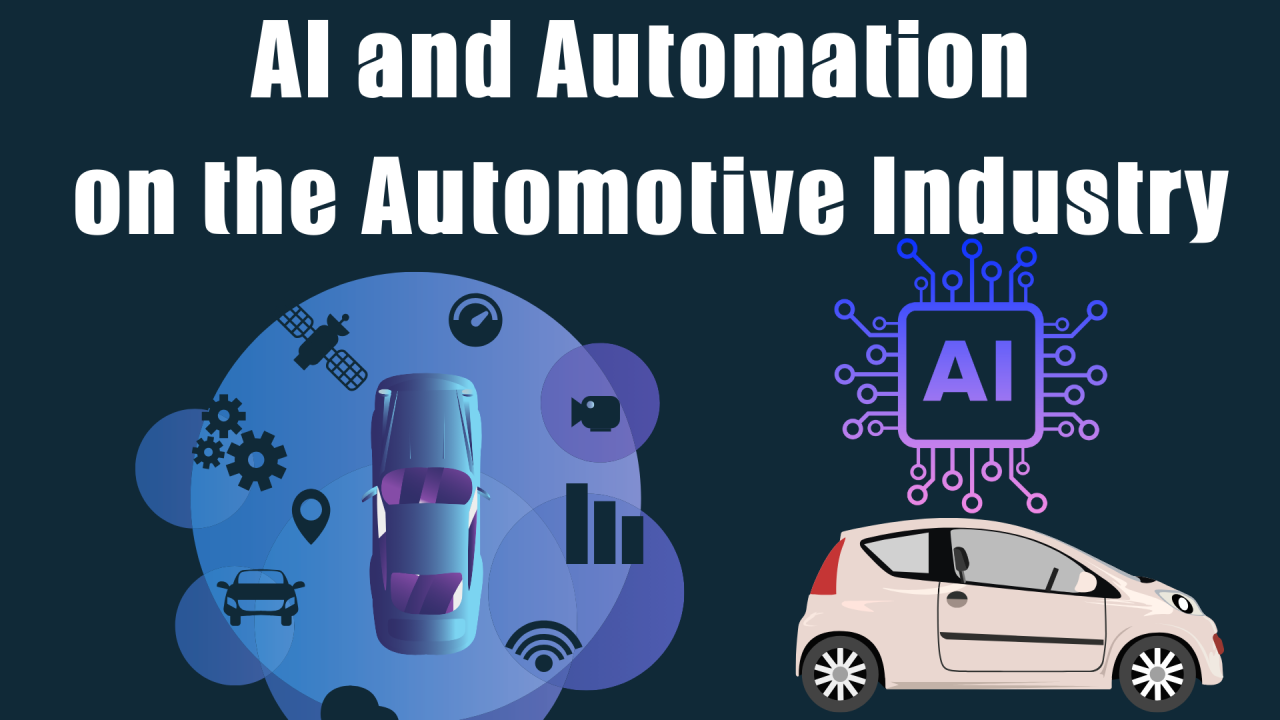Understanding the Impact of AI and Automation on the Automotive Industry
Artificial Intelligence (AI) and automation have significantly transformed the automotive industry, driving advancements in vehicle production, autonomous driving, safety features, and customer experience. The integration of AI has not only enhanced efficiency but has also revolutionized how vehicles are designed, manufactured, and utilized. This article explores the profound impact of AI and automation on the automotive sector and the future trends shaping the industry.
Table of Contents
- The Role of AI in the Automotive Industry
- Automation in Vehicle Manufacturing
- Autonomous Vehicles and Self-Driving Technology
- AI-Powered Safety and Driver Assistance Systems
- Smart Vehicle Connectivity and AI Integration
- Predictive Maintenance and AI in Car Diagnostics
- AI in Supply Chain and Logistics for Automotive
- AI in Automotive Customer Experience and Personalization
- Challenges and Ethical Considerations in AI Automotive Adoption
- Future Trends and Innovations in AI and Automation in the Automotive Industry
- Conclusion
1. The Role of AI in the Automotive Industry
AI has become a critical component in modern automotive advancements. It plays a crucial role in enhancing vehicle automation, efficiency, safety, and decision-making capabilities.
Key Functions of AI in Automotive:
- Machine learning for predictive analytics
- AI-driven design and prototyping
- Advanced navigation systems
- AI-powered chatbots for customer interaction
- Autonomous vehicle development
2. Automation in Vehicle Manufacturing
Automation in the automotive manufacturing process has led to increased efficiency, accuracy, and cost reduction.
Key Areas of Automation:
- Robotic Assembly Lines: Precision manufacturing and reduced production errors
- Automated Quality Control: AI-powered inspection for defects
- Supply Chain Optimization: AI-driven logistics and inventory management
- 3D Printing and AI-Enabled Prototyping: Faster innovation cycles
| Automation Type | Benefits |
|---|---|
| Robotic Assembly | Improved precision and efficiency |
| AI Quality Control | Reduced errors and enhanced safety |
| 3D Printing | Faster prototyping and cost-effectiveness |
3. Autonomous Vehicles and Self-Driving Technology
Self-driving cars are at the forefront of AI advancements in the automotive industry.
Levels of Automation:
- Level 1: Basic driver assistance (adaptive cruise control)
- Level 2: Partial automation (lane-keeping assist)
- Level 3: Conditional automation (self-driving in specific conditions)
- Level 4: High automation (operates independently in most situations)
- Level 5: Full automation (no human intervention required)
4. AI-Powered Safety and Driver Assistance Systems
Advanced Driver Assistance Systems (ADAS):
- AI-powered lane departure warning
- Automatic emergency braking (AEB)
- Blind-spot monitoring
- Traffic sign recognition
| Safety Feature | Function |
| Adaptive Cruise Control | Adjusts speed based on traffic |
| Collision Avoidance | Detects obstacles and applies brakes |
| Lane Keep Assist | Prevents unintentional lane departure |
5. Smart Vehicle Connectivity and AI Integration
Connected cars use AI to improve driver experience and vehicle functionality.
Key Features:
- AI-powered voice assistants (e.g., Alexa, Siri)
- Real-time traffic and navigation updates
- Over-the-air software updates
- AI-powered in-car entertainment systems
6. Predictive Maintenance and AI in Car Diagnostics
AI helps predict and prevent vehicle failures, reducing maintenance costs and improving vehicle longevity.
Benefits of AI in Predictive Maintenance:
- Early detection of mechanical failures
- Remote diagnostics
- Optimized servicing schedules
7. AI in Supply Chain and Logistics for Automotive
AI optimizes logistics in the automotive sector by enhancing supply chain management and demand forecasting.
AI-Driven Logistics Solutions:
- Real-time inventory tracking
- AI-powered demand forecasting
- Automated warehouse management
8. AI in Automotive Customer Experience and Personalization
Key Applications:
- AI-powered virtual assistants for customer support
- Personalized vehicle settings based on driver preferences
- AI-driven marketing strategies for automotive sales
9. Challenges and Ethical Considerations in AI Automotive Adoption
While AI has revolutionized the automotive industry, it also presents challenges.
Key Challenges:
- Data privacy concerns
- Ethical considerations in AI decision-making
- Cybersecurity threats in connected vehicles
10. Future Trends and Innovations in AI and Automation in the Automotive Industry
- Fully autonomous vehicle development
- AI-powered traffic management systems
- Integration of AI in electric vehicles (EVs)
- Smart city infrastructure integration
11. Conclusion
The automotive industry is undergoing a revolutionary transformation with AI and automation at its core. These technologies are improving safety, efficiency, and driving experiences while presenting challenges that need careful consideration. The future promises even more innovations that will reshape mobility as we know it.


